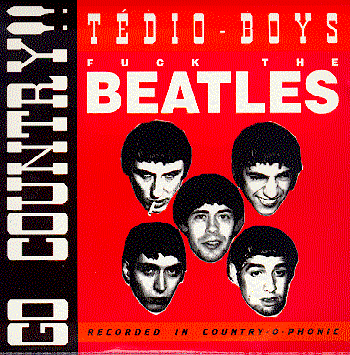DVD Review : Meio Metro De Pedra – An Independent Broadcast About The Rock ‘N’ Roll Counterculture
- Written by Kenneth McMurtrie

Much like the allusion to a certain Liverpudlian quartet making an impact in Robert Harris’s Fatherland, Portugal, under the real life Salazar regime (1932 – 1968), managed to have a lively & rebellious rock ‘n’ roll scene during a seriously right-wing period of time, the history and legacy of which this well made documentary by Eduardo Morais records.
The initial imagery of the film is captivating for the committed fan – a series of 7” singles are pulled from and then returned to their box, giving brief glimpses of the sleeves and leaving you wondering at the gems they may contain. A mini-homage to the media itself. From their the action shifts to interviews of the ‘talking head’ variety with stars (Daniel Bacelar, Victor Gomes) and surviving groups (Diamantes Negros being one) from the late 1950s and early 1960s, citing such influences as Bill Haley’s Rock Around The Clock film, the Teddy Boy scene, Little Richard and the like.
Moving further into the Sixties The Shadows and The Searchers are highlighted as influential in the local bands’ developments (UK bands, if not actually the styles they played, seem to have been a greater influence from the start, possibly due to the proximity of the two countries but certainly in the Sixties due to the ‘play anywhere’ attitude that prevailed) as well as the 23a Hora radio show and impresario Vasco Morgado. It’s not until a couple of The Parkinsons are interviewed later in the film that the likes of the Small Faces, the Nuggets-type garage sound and suchlike are mentioned though The Beatles are obviously referred to a number of times throughout and acts like Lisbon’s Os Monsters delivered up a biker-look proto-garage at the time. Although many appear to have sung their songs in English the film doesn’t give the impression that cover versions were relied upon too heavily.
Psychedelia (Os Jets, mod-like & Os Chinchilas, hippies, being two of the more popular exponents along with Os Steamers, who had a sound and look somewhere between The Outsiders and The Pretty Things) arrived in Portugal in the late Sixties as the country returned to democracy and from there, as more outside influences (both good and bad) became evident in the country as a whole things follow the same path as witnessed in most countries with some sort of rock scene and punk duly took root on the late Seventies where such bands as Aqui D’el Rock were aided in their development by the likes of the Rock Rendez Vous club in Lisbon opening their doors.
Post-punk and indie movements, as well as a rock ‘n’ roll revival along the lines of the work of The Cramps, progressed things in the Eighties with bands such as Cabecas De Gados and Caes Vadios making names for themselves. Single cover art and the diy ethic of labels like Ama Romanta, Bee Keeper and Lux, combined with the low cost of cassettes, saw cities such as Braga developing strong local scenes. In the Nineties the cycle of domination seemed to favour the city of Coimbra whilst the aforementioned Parkinsons and Les Baton Rouge made an international impact (the former following the tried and tested path of basing themselves in London for a period of time).
Currently Groovie Records are one of the country’s hot indie labels and outlets for live performance like the Quarterio Rock Fest & the Barriero Rocks festival maintain platforms for a varied, vibrant and vital level of new acts (despite a lack of decently supportive radio stations other than the notable Antena 3 & the one operated by the University of Coimbra) to play alongside ones from abroad, whilst the Primavera festival now has a second run in Porto after the initial one over the border in Barcelona, much like Reading & Leeds in the UK. The film itself is very well made with the amount of interviewees being just right and a good variety of interview locations being used. On the downside the music itself is kind of required to take a backseat – we see single covers and tunes are evident behind the interviews but it’s not always totally clear what they are, despite the list that come up in the closing titles. A companion OST disc or online playlist would therefore address this gripe.
This review was miraculously written without the aid of subtitles but you can view the film here with them (click on the Captions button at the right of the progress bar). We heartily encourage you to make use of the donate button when doing so. We have.


